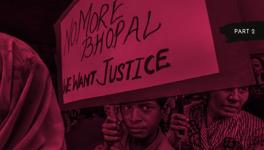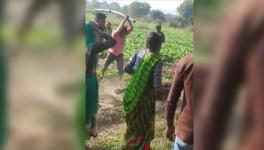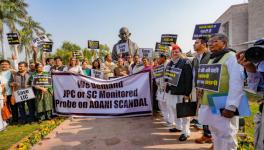Use and Misuse of Anti-Dacoity Law in Madhya Pradesh
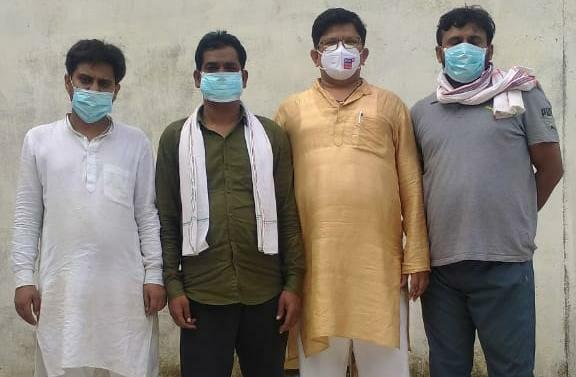
Raghvendra Yadav and three others were booked under the anti-dacoity law.
Bhopal: In March 2007, the Madhya Pradesh police gunned down Jagjeevan Parihar—the last listed dacoit of the state, wiping out the dacoit menace from the region. However, the anti-dacoit law, enforced in 1981 to rein in the dreaded dacoits in the Gwalior Chambal region, still prevails, with 922 FIRs lodged in the last three years, including those related to mobile theft, assault, and violent protests.
According to the state Assembly records of March 2023, dacoits have vanished from Madhya Pradesh, and the state no longer has listed dacoits or gangs. Yet, between April 2020 and February 2023, the police lodged 922 FIRs under this anti-dacoit law across six districts of the Gwalior-Chambal region. Apart from the FIRs, a fund of Rs 115 crore was spent between 2017-18 and 2019-20 to curb the dacoity menace.
The anti-dacoity law, once a useful tool to suppress the dreaded dacoits infesting the ravines of Gwalior-Chambal, is now being used to settle scores, with some alleging it's being used to quell dissent and silence political opponents. Amid its increasing misuse, the demand to repeal the law is gaining momentum in poll-bound Madhya Pradesh.
By amalgamating various Sections of the Indian Penal Code 1861 and the Code of Criminal Procedure 1973, Madhya Pradesh formulated the MP Dakaiti Aur Vyapharan Prabhavit Kshetra Adhiniyam in 1981 [MPDVPK Act] or the anti-dacoity law. This law grants special powers to the police to combat the menace of organized and unorganized gangs of dacoits, tightening bail provisions, strengthening punishments, and reducing the burden of proof.
The law also empowers the state government to confiscate the properties of dacoits, protect informers, and establish special courts to handle these cases. Since 1981, the special law has been in effect in all four districts of the Chambal region, Gwalior, and Shivpuri districts of the Gwalior region, along with Panna, Rewa, and Satna districts, which were grappling with the dacoity menace.
After the killing of the last dacoit a decade and a half ago, the region has been at peace. However, cases under the anti-dacoity law continue to accumulate, and funds continue to flow. Senior officials of the Madhya Pradesh police favour maintaining the law, but a Section of society is demanding its repeal, alleging that it is being misused for political vendetta.
For instance, Raghavendra Singh Yadav, a 40-year-old Congress worker from Madhya Pradesh's Datia district, and three of his party members were booked under the anti-dacoity law in 2021. They were accused of assaulting the party's district president, Ashok Dangi, in August 2021 and snatching his mobile worth over Rs 8,000. However, the Kotwali police invoked Sections of robbery [IPC Section 392] and Section 11/13 of Madhya Pradesh's special anti-dacoity law MPDVPK Act 1981.
Yadav and his fellow Congressmen were arrested in the middle of the night amid heavy police deployment.
"Since we were outspoken against a powerful minister of the ruling party and Congress' Datia district president Dangi, the duo hatched a conspiracy framing their four critics. On the complaint of Dangi, the police invoked the Sections of the anti-dacoity law, which was promulgated to rein in the dreaded dacoits of the Gwalior-Chambal region," said Yadav, adding that they were assaulted black and blue inside the police stations for speaking against the Minister.
Their photos, in undergarments, were also leaked to the press.
Yadav, with no previous criminal record, walked free after spending over 60 days in jail when the Gwalior High Court granted bail to him. Later, one of his partymen, Annu Khan, arrested with Yadav, defected to the BJP. "We were taught a lesson and threatened not to oppose the BJP minister."
Not just individuals, Sections of the anti-dacoity law were also invoked in the cases lodged in the aftermath of April 2, 2018, caste violence.
As many as nine cases were filed against Dalits in Morena district in the aftermath of the violence, and the police invoked Sections 11/13 of the anti-dacoity law in the FIRs. "As many as nine FIRs were lodged in Morena district against hundreds of Dalits. To corner the community leaders, the police invoked Sections of the MPDVPK Act 1981. Even though the cases fell flat in court, the police continue to hound and bully the accused," said advocate Jitendra Chouhan. Chouhan defended the accused in three cases out of nine.
"If we look at the conviction rate of the cases filed under the anti-dacoity law, one can understand its real use," he added.
In another example of misuse of the law, in 2010 in Gwalior, two meat vendors accused the then Gwalior Municipal Commissioner, deputy commissioner, and five others of looting Rs 15,000 at a meat shop after the Municipal Commission razed their shops in the demolition drive. The vendors filed a petition in the special court [anti-dacoity] against the officials, demanding the lodging of an FIR under Sections 11 and 12 of the anti-dacoity law and Section 396 [robbery]. The court admitted the petition ordering the police to lodge an FIR against them.
When the officials moved to the High Court, claiming that the action was uncalled for, the court stayed the case.
Mevaram Jatav, a Congress legislator from Bhind, raised the issue of misuse of the anti-dacoit law in the region during the budget session [Feb-March] of the Assembly this year, demanding its repeal. "The misuse of the anti-dacoity law is rampant in the region. Leaders of the ruling party use these laws to quell dissent and silence opponents," said Jatav over the phone.
He further said, "On one hand, the home minister and chief minister boast that dacoits have disappeared from the region; on the other hand, the police registered 922 cases in just three years under the anti-dacoity law. To be specific, in Gwalior alone, as many as 314 cases were lodged in the last three years. The government should explain it. If they are not dacoits, then why are the Sections of the anti-dacoit laws invoked?"
In his demand to repeal the act in the Assembly, Home Minister Narottam Mishra, in a written reply, defended it, saying, "The special law plays a key role in tackling the dacoit menace in the region and is still effective in controlling unlisted gangs within the region. The law can't be repealed as it's key to keeping inter-state gangs [UP and Rajasthan] in check, which crop up often."
Malkhan Singh, once a dreaded dacoit of the Chambal region who surrendered with 60 others in 1982 and entered into electoral politics, also vouched for the repeal of the law.
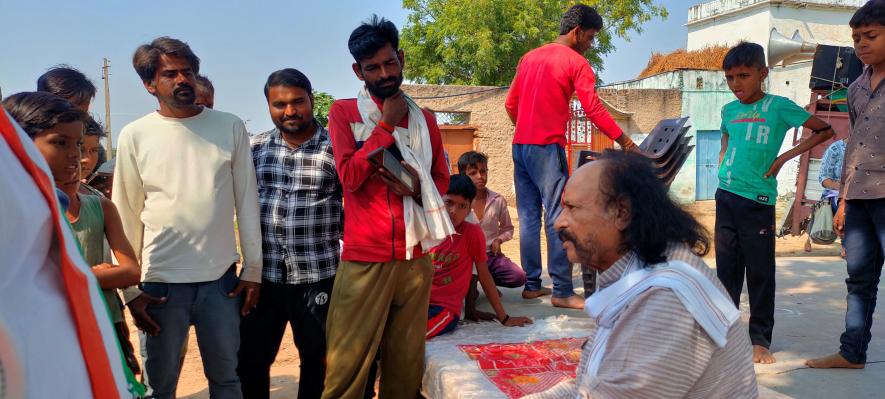
Malkhan Singh campaigns for the Congress party ahead of the Assembly polls.
When questioned about the relevance of the law, the 80-year-old Singh lamented, "It should be repealed with immediate effect as IPC laws are sufficient to handle the current situation. The region is at peace, as everyone wants development. Technology has advanced, revenue laws have improved over the years. Injustice is not as prevalent as it once was; hence, no one wants to take up arms and live a life in the ravines."
Rakesh Achal, who has authored several books on dacoits of Chambal, also raised concerns about the misuse of the law.
Speaking to the reporter, he pointed out, "With the death of Jagjeevan Parihar, the dacoit menace came to an end in Madhya Pradesh. The law, which was promulgated to end the dacoit menace, should have been repealed long ago, but sadly, it's still in effect."
He further said, "Reports of the misuse of the law often come to notice, in which a person is booked for sheltering dacoits, supplying arms, food, and passing information to them. When there are no dacoits, how can the police book someone under those charges? Many suggest that the police do so to keep the funds flowing."
Get the latest reports & analysis with people's perspective on Protests, movements & deep analytical videos, discussions of the current affairs in your Telegram app. Subscribe to NewsClick's Telegram channel & get Real-Time updates on stories, as they get published on our website.











